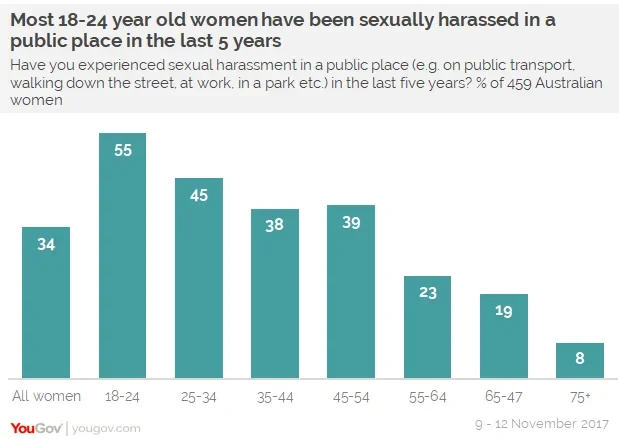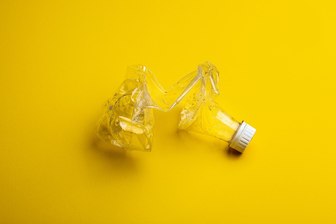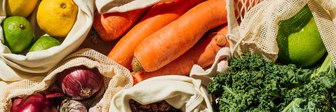Sexual comments and jokes are the most common forms of harassment women are subjected to
The increasing number of allegations against Hollywood producer Harvey Weinstein has put the harassment of women into the spotlight.
New YouGov Omnibus research reveals that the majority (55%) of 18-24 year old women say they have experienced sexual harassment in a public place in the last five years. Among Australian women of all ages the figure is 34%, with older women less likely to have been harassed than young women.

Streets and pubs, clubs or bars are the places where harassment is most likely to occur, with over six in ten 18-24 year-old women who say they have been harassed stating that it happened to them in the street (65%) or in a pub, club or bar (62%).
Half (55%) of young women who have been harassed also report that it has occurred at public events such as festivals, concerts or sports matches, 54% state it happened on public transport, and a quarter (26%) say it has occurred in the workplace.
The overwhelming majority of women who have been harassed in the last five years say they have never reported such harassment to the police or other authority figures. Among women who have been subjected to harassment, two thirds (67%) have never reported it to an authority figure.
53% of young women have suffered uncomfortable sexual comments
YouGov also asked women whether or not they have ever been subjected to various forms of sexual harassment. The most common form young women have received are verbal comments of a sexual nature, with 53% of women aged 18-24 saying that someone had made sexual remarks to them that made them feel uncomfortable.
Additionally, half of young women (46%) said that they had been made to feel uncomfortable by jokes of a sexual nature, and 46% had experienced inappropriate touching. A further 41% had received inappropriate emails, letters or texts, 23% had been sent pictures or photos of a sexual nature, and 21% had been inappropriately hugged.
*Data was collected online by YouGov Omnibus between 9 and 12 November 2017 among 459 respondents in Australia. Results are representative of the adult population.
Photo source: Getty Image






